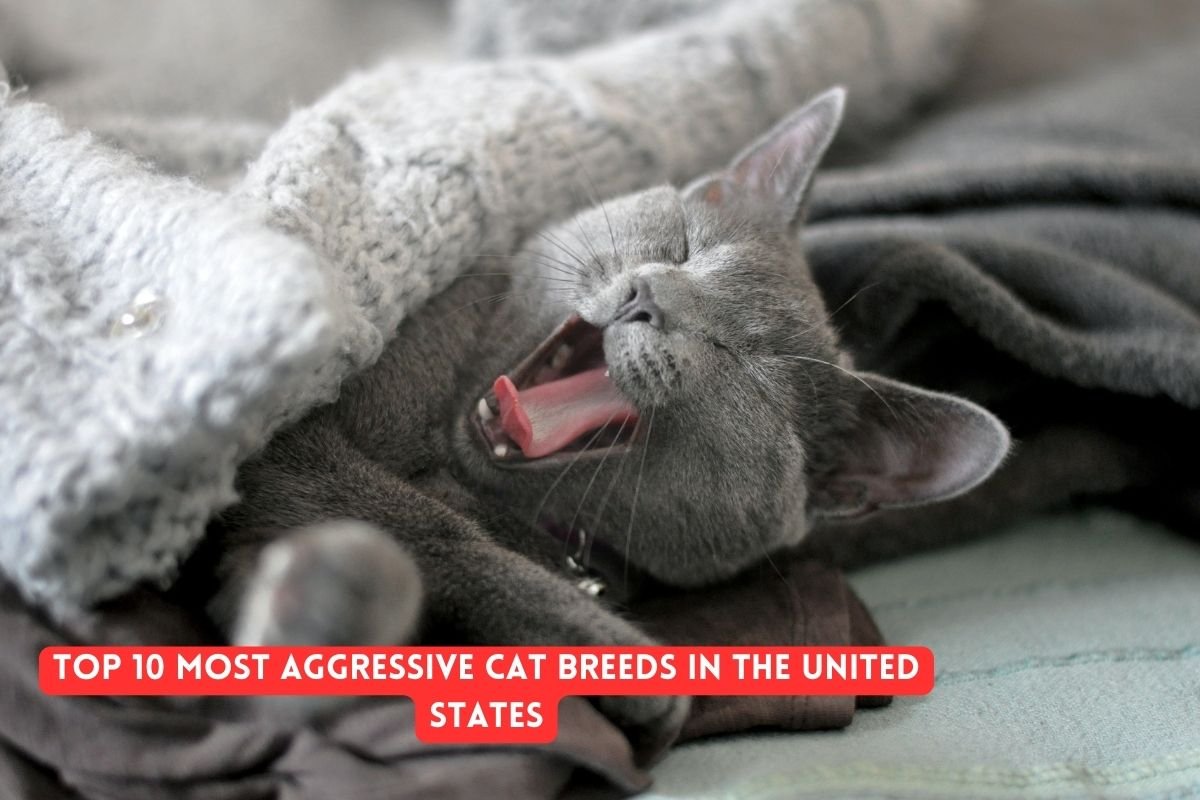In the world of feline companionship, while many cats are known for their affectionate and calm nature, there are some breeds that stand out for their high levels of aggression and fieriness. Siamese cats are notorious for their vocal nature and strong-willed personality, which can sometimes manifest as aggression towards other pets or even their owners. Here, we present the top 10 most aggressive cat breeds in the United States, based on various factors including temperament, historical tendencies, and anecdotal evidence.
Bengal Cat
The Bengal cat, known for its wild appearance and energetic demeanor, often exhibits territorial behavior and can be prone to aggression if not properly socialized from a young age.
Siamese Cat
Despite their elegant appearance, Siamese cats are notorious for their vocal nature and strong-willed personality, which can sometimes manifest as aggression towards other pets or even their owners.
Sphynx Cat
While Sphynx cats are affectionate and loving companions, they can also display aggressive tendencies if they feel threatened or if their boundaries are not respected.
Maine Coon Cat
Maine Coons are generally gentle giants, but they can become aggressive if provoked or if they feel their territory is being encroached upon by other pets.
Scottish Fold Cat
Scottish Folds are known for their unique folded ears and sweet disposition, but they can also exhibit aggressive behavior if they feel stressed or uncomfortable in their environment.
American Bobtail Cat
American Bobtails are highly intelligent and active cats, but they can also be possessive of their territory and may show aggression towards other animals or unfamiliar humans.
Russian Blue Cat
Russian Blues are typically reserved and shy cats, but they can become aggressive if they feel threatened or if they are not provided with enough mental stimulation and enrichment.
Persian Cat
Persian cats are known for their calm and laid-back demeanor, but they can display aggression if they feel overwhelmed or if their grooming needs are not met.
Abyssinian Cat
Abyssinians are energetic and curious cats, but they can also become aggressive if they are bored or if they feel confined in their living space.
Turkish Angora Cat
Turkish Angoras are playful and affectionate cats, but they can exhibit aggressive behavior if they feel stressed or if they are not given enough opportunities for exercise and mental stimulation. Siamese cats are notorious for their vocal nature and strong-willed personality, which can sometimes manifest as aggression towards other pets or even their owners.
In conclusion, while aggression in cats is not limited to specific breeds and can be influenced by various factors including genetics, environment, and socialization, the aforementioned breeds have been noted for their tendency towards aggression in certain circumstances. It is important for cat owners to be aware of these traits and to provide their feline companions with appropriate care, training, and enrichment to ensure a harmonious relationship.
FAQs
Can aggressive cat behavior be corrected?
Yes, with proper training, socialization, and environmental enrichment, aggressive cat behavior can often be managed effectively.
Are all cats of these breeds aggressive?
No, not all cats of these breeds will display aggressive behavior, as temperament can vary widely within a breed.
What factors contribute to aggression in cats?
Aggression in cats can be influenced by genetics, early socialization, past experiences, and environmental factors.
How can I prevent aggression in my cat?
Providing your cat with a stimulating environment, regular exercise, and positive reinforcement training can help prevent aggression.
Should I consult a professional if my cat displays aggressive behavior?
Yes, if your cat exhibits persistent or severe aggression, it is advisable to seek guidance from a veterinarian or animal behaviorist to address the underlying causes and implement appropriate management strategies.
